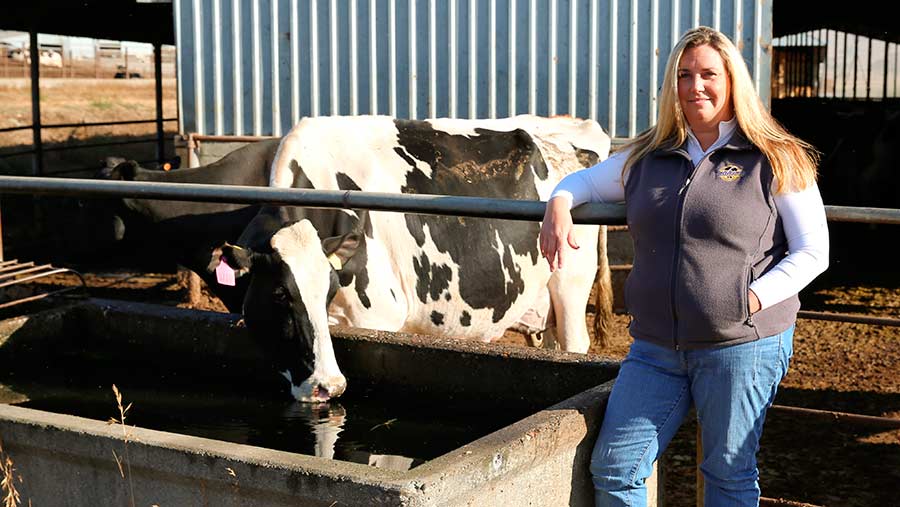Farmer Focus: Creek curbing gives peace of mind over water quality
 Jessica McIsaac ©Brianna Frey
Jessica McIsaac ©Brianna Frey We are busy working on another project before the weather changes.
We are adding about 90m of 20.5cm-high curb along a creek. This is about 7.5m from a heavy-use walkway for our milking cows.
For years my husband didn’t see the importance of this project, but I convinced him because we are increasingly under pressure from regional and state water-quality agencies.
Part of the project also includes cementing a cattle yard used for our milking heifers.
It is a rather large yard that first needed to be grated. It also borders a creek.
These improvements will make it easier for us to clean up manure without the risk of contaminating the creek.
Peace of mind
It also gives me peace of mind during our water-quality inspections – I know that I shouldn’t have any out-of-compliance write-ups in this high-risk area.
The main reason I was able to get this project done this year is I utilised funds from the Natural Resource Conservation System, which is a part of the US Department of Agriculture. They provided an engineer to design the project and a contractor to construct it. We are looking forward to this improvement.
See also: Milk taxi for calf feeding one of our best investments
As autumn sets in and the days get shorter, a simple thing like light can make or break a poultry business.
Chickens would lay seasonally if it were up to them. I keep about 7,000 birds at a time, so productivity is very important.
Tailor-made system
Since hens are on pasture year-round, the houses don’t have electricity. Instead, I use a solar-powered lighting system made specifically for small poultry producers.
A small solar panel charges a small battery – similar to a mobile phone power pack – which powers single red and white LED lights. The combination of the two seems to be a good fit.
When I first began producing eggs my lights weren’t bright enough.
Using the solar-powered light has increased my production about 7% year-round and 25% during autumn and the winter months.
Jessica McIsaac milks 350 pedigree Holsteins in Petaluma, California, with her husband, Neil. They sell organic milk and also have 6,000 laying hens.
